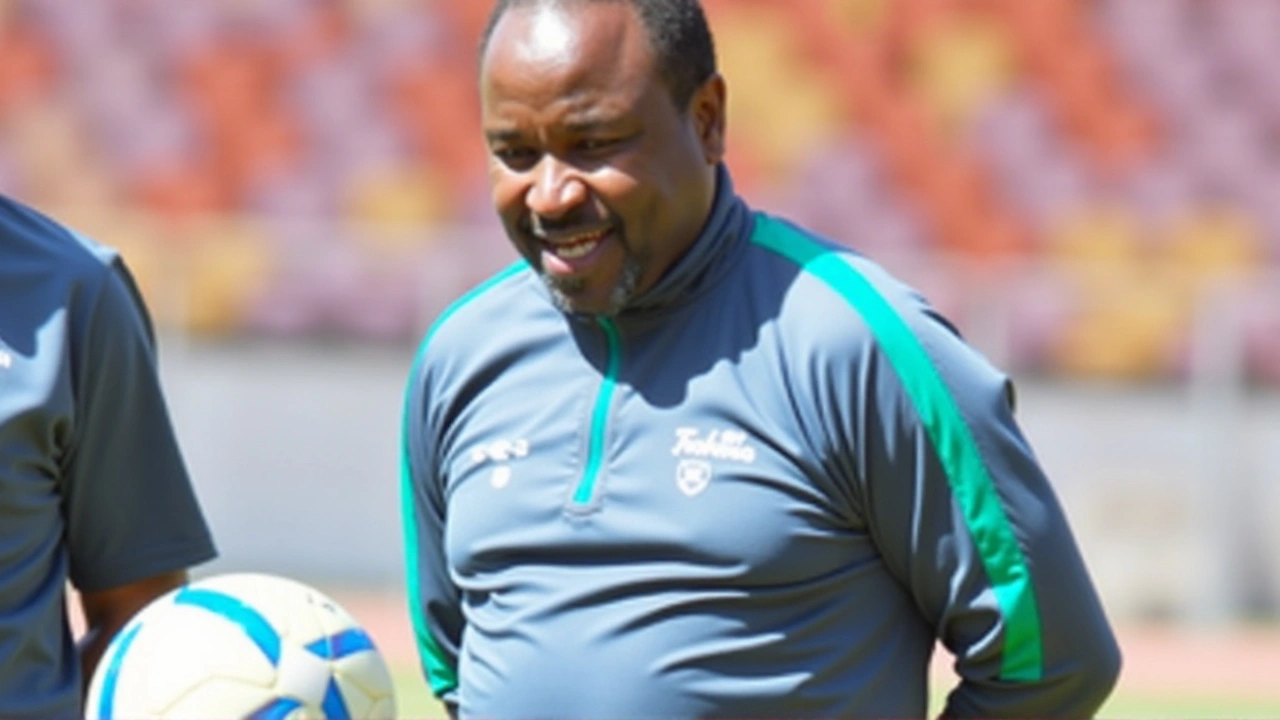Tijani Babangida Relives Devastating Crash That Took Son and Brother Along Kaduna-Zaria Road
 Dec, 14 2024
Dec, 14 2024
Remembering a Tragic Day
The date May 9, 2024, is indelibly etched in the memory of Tijani Babangida. Once a celebrated winger for Nigeria's Super Eagles, Babangida's life turned upside down when a horrific car accident took the lives of his one-year-old son, Fadil, and his beloved younger brother, Ibrahim Babangida. The incident occurred along the notorious Kaduna-Zaria highway, a stretch known for its dangers and tragic accidents.
Babangida's world halted that day, but his testimony and courage during such harrowing times have offered a significant story of resilience and grief. Known for his explosive speed and soccer prowess, Babangida faced adversities far beyond the athletic field. His recount of the fateful day is not just a testament to the fragility of life but also a narrative on familial bonds, love, and loss. In a poignant and heartfelt documentary released by Ajax Amsterdam, Babangida vocalizes the tremendous void left by their absence.
Unfolding the Events
The crash’s aftermath was nothing short of catastrophic for the family. Babangida's wife suffered grievous injuries, fundamentally altering her visage and requiring complex reconstructive surgeries, including the loss of an eye. Additionally, their family maid endured a fractured leg, adding to the physical and emotional devastation borne by the accident.
For months, emotional healing seemed insurmountable, with every slice of reality driving deeper the magnitude of their loss. Babangida's accounts delineate a struggle confronted with the stark realities of loss—pain persistent with every photograph and memory. He confessed that the accident has engraved a wound that time hasn't healed, marking a period of intense sorrow intertwined with cherished memories of loved ones lost too soon.
A Shattered World
For many, grief is a solitary journey, but Babangida's experience was further intensified under a public sphere, grappling with a personal apocalypse, where joy once thrived with his son and brother's presence. He shares the painful memory of informing his wife of their child’s demise three months post the tragedy—a moment of unforgettable anguish.
Seeking medical treatment abroad in the Netherlands, the family's bonds were tested, and their capacities to overcome debilitating grief examined. Babangida’s narrative underlines a struggle for normalcy against overwhelming odds—a testament of human endurance amidst crippling tragedy.
Brotherly Bonds and Forever Ties
Ibrahim Babangida, much like Tijani, was not a stranger to the thrill and demands of professional football. He played an integral part in Nigeria's triumphant acquisition of the 1993 FIFA U-17 World Cup. Ibrahim, both empathetic kin and a fellow warrior of the pitch, shared an enduring camaraderie with Tijani, one that surpassed the confines of their individual and collective sporting exploits.
The loss of his brother added to Tijani's mounting depths of bereavement, compounding the personal tragedy with professional sorrow for a comrade on and off the field. Their shared heritage in Nigerian football deepened the yearning for a brother gone too soon and leaving behind a legacy steeped in shared victories and cherished memories.
Reflecting on Loss, Moving Forward
Babangida's resolve, showcased through his candid disclosures, resonates universally, opening dialogue on the profound impact of sudden loss. As the scars embedded by tragedy sting, Babangida's story inspires a narrative of moving forward amidst overwhelming grief. This personal catastrophe reflects on the many who have endured similar fates, forging resilience through unspeakable loss.
Opening up about the loss in a public documentary could be deemed both cathartic and burdensome, but it has also reinforced community empathy and widened understanding of such personal tragedies. Babangida's tale serves as a sobering reminder of life's tenacity amidst bleak despair, encapsulating the strength needed to confront, endure, and ultimately, heal.
Family, Football, and Future
Now, as Tijani Babangida continues to carve paths toward healing, focus shifts to bolstering support networks for those affected by similar tragedies. His ability to recount such trauma publicly has drawn attention not only to the inherent dangers faced on Nigerian roads but also to the necessary solace sought post-misfortune.
While Tijani strives to navigate through life’s relentless currents without his cherished son and brother, a new purpose surfaces—in his grief, he finds the impetus to advocate for safer havens and communal understanding. Though haunted by the collective echoes of painful memories, his journey holds space for hope, action, and advocacy.